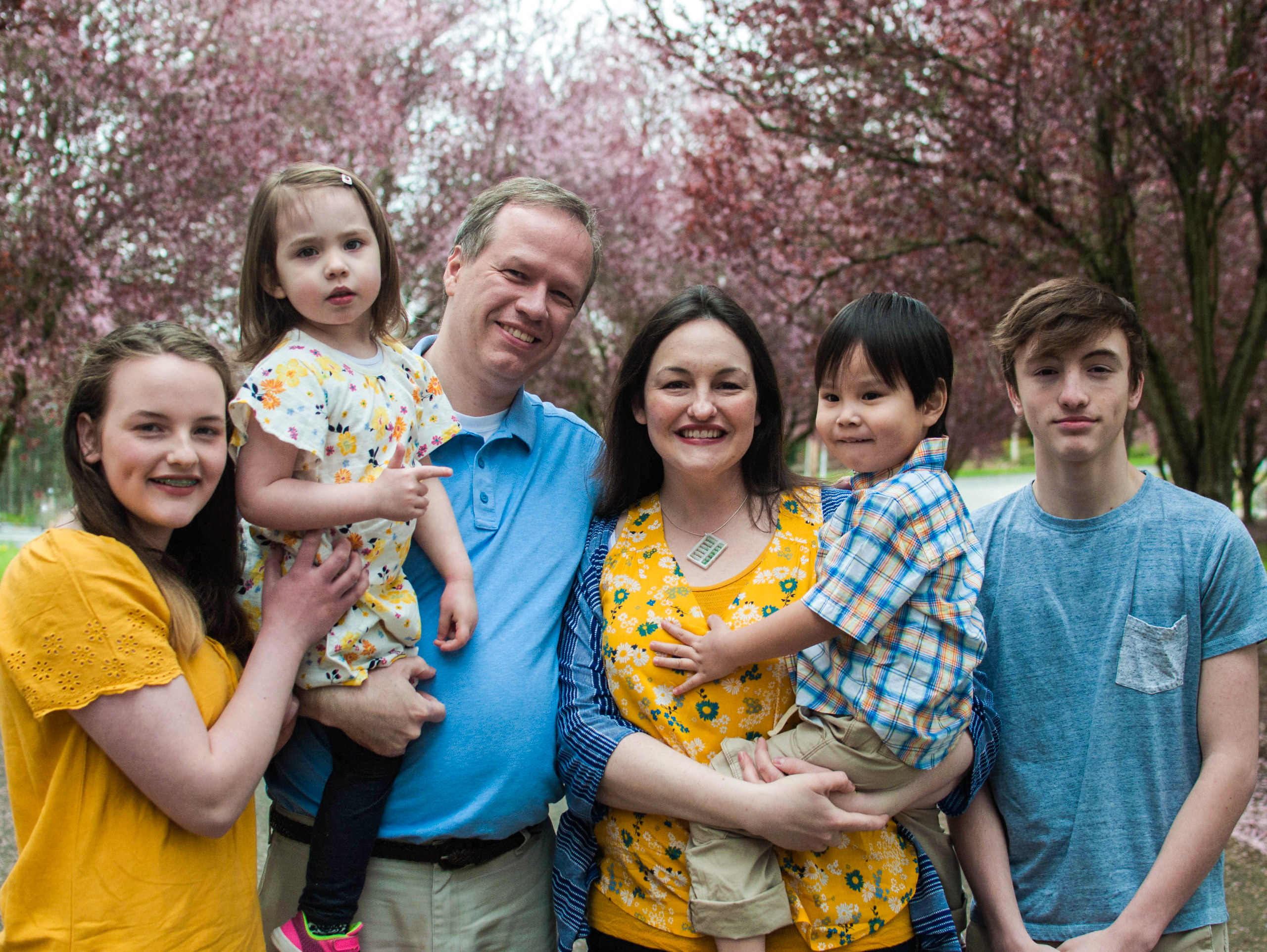One adult adoptees shares how she helps her children navigate the emotional issues that come up during family tree projects at school.
Much has been written about helping adopted children and their parents navigate school projects that trigger emotional issues surrounding adoption. You know, the Trace Your Family History and Draw Your Family Tree kind of projects. Adoptive parents are often encouraged to talk with their child’s teachers to smooth the path and help them understand issues around adoption. Sometimes, teachers will adapt assignments to accommodate the adoptee’s special circumstances. In these instances, children are aware of their stories, but may have varying degrees of comfort in relaying their story to the class.
With support and understanding, they can successfully complete their projects, feel proud of their story and feel loved, accepted and more in tune with their own identity.
Adult Adoptees may, however, have a very different experience when their own biological children are faced with the same assignments — and not much has been written from their perspective. As an adult adoptee, I was quite perplexed when my 3rd grade son came home with the assignment to draw a family tree and put photographs of parents, grandparents and great-grandparents on the tree. The rubric expected him to also include birth dates and ethnic information. This was meant to be a fun opportunity for children to collaborate and connect with their parents while learning some family history.
For me, it created a sense of dread.
My adoption was complicated. My adoptive parents died before my children were born, so my children never knew their grandparents. My adoptive mother died when I was a child, and my father remarried. I had a step-mother, who also died before my children were born. And as an adult, I learned that my adoptive mother was actually a biological aunt — meaning I am actually biologically connected to my adoptive family! Although I eventually had the opportunity to meet my biological mother, I don’t have an ongoing relationship with her.
Until this assignment, I felt it was always enough to tell my children that my parents “were in heaven.” They never seemed to have a lot of questions about it, much to my relief. But then suddenly, I found a piece of poster board in front of me demanding that my personal family history be displayed before my son’s entire 3rd grade class.
When I learned about this assignment, my first reaction was to Avoid It. I put off the trip to the craft store for poster board and supplies, secretly hoping that my son’s teacher would just forget about it. I wanted to forget about it. But over the following days, I became increasingly angry about it. The assignment became larger than life in my mind and I resented that the teacher and the assignment were stirring up so much inner turmoil. The assignment raised conversations that I just didn’t know how to begin and stories that I just didn’t want to tell my son and his younger siblings.
This was meant to be a fun opportunity for children to collaborate and connect with their parents while learning some family history. For me, it created a sense of dread.
And good grief, were THEY going to have to complete this same assignment someday?!
Maybe I should take my kids out of school and start homeschooling now, I thought. Besides, the poster board wasn’t even big enough to portray the whole complicated story. I could just talk about my adoptive parents — who died — and leave it at that. But that didn’t seem right because then I would only be telling my son part of the story. And that was the part of the story that I grew up knowing and eventually learned wasn’t entirely true. I didn’t want to perpetuate that false family history. But how do I explain to a 3rd grader the concept of an “out-of-wedlock” birth? How do I tell him that I have a grandmother who is still alive, but has another life?
I want to tell my children my story— which is also their heritage and story — when I feel ready and when I feel they are ready.
But it’s not going to be when my son is in 3rd grade.
And it certainly is going to be because of a family tree poster.
In the end, I called the teacher. And without disclosing my family story, I let her know that I had a complicated background that I had chosen not to discuss just yet with my son. I told her that I decided his project would only reflect the branches of my husband’s family. I needed her to understand that this was a highly personal project and that my child should not be graded or judged by the amount of information he had about my adoption story. I couldn’t help but wonder how many times teachers assign this type of project. Surely, I’m not the only adult adoptee who has had to figure out how to address this issue. For some, it probably feels right to share their adopted heritage. Some may feel comfortable sharing both their biological and adoptive family history. Maybe, for some, it’s not such a “hot button” issue.
But for others, like me, it’s complicated.
After our phone conversation, the teacher was kind enough to let my son’s class know they can choose to create a whole tree or just the branches of one side of their family. I helped my son complete a beautiful poster with lovely photos of several generations of my in-laws. And I breathed a sigh of relief, feeling that I could safely guard my privacy and control how and when I decide to tell my story to my children.
At the same time, I was still on pins and needles wondering if my son was OK with creating only one branch of his family tree. I soon discovered that while I was fretting, my son wasn’t really that engaged in the whole project. In fact, he was more hung up on another issue this project raised.
“If we don’t live in a tree house,” he asked, “why we are designing a family tree?”
I also marveled at how little discussion the project actually generated about family, and how many complaints it raised about left-handed scissors and why too much glitter glue is not a good idea. It just reinforced for me that the story will be told when the time is right. Which is what I knew in my heart all along.
Joanna Mittereder, LSW | Branch Social Worker


